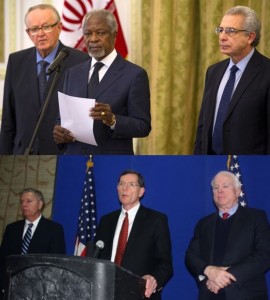James Taylor, King Herod, and January 6th

James Taylor in Concert (h/t photographer Elizabeth Warren. Yes, that Elizabeth Warren. [CC BY 2.0])
In the time of King Herod, after Jesus was born in Bethlehem of Judea, wise men from the East came to Jerusalem, asking, “Where is the child who has been born king of the Jews? For we observed his star at its rising, and have come to pay him homage.” When King Herod heard this, he was frightened, and all Jerusalem with him; and calling together all the chief priests and scribes of the people, he inquired of them where the Messiah was to be born. They told him, “In Bethlehem of Judea; for so it has been written by the prophet: ‘And you, Bethlehem, in the land of Judah, are by no means least among the rulers of Judah; for from you shall come a ruler who is to shepherd my people Israel.’” Then Herod secretly called for the wise men and learned from them the exact time when the star had appeared. Then he sent them to Bethlehem, saying, “Go and search diligently for the child; and when you have found him, bring me word so that I may also go and pay him homage.”
There is no way that Herod’s words to the Magi were anything but a ruse, and anyone hearing this story back in the day knew it. Herod the Great was a feared figure, having risen to power through his father’s political connections with Julius Caesar. In the time-honored tradition of despots everywhere, he was ruthless to those below him that he viewed as potential threats to his wealth and power (i.e., all the locals), and relentlessly sucked up to those above him (i.e., Rome). This combination led the Senate of Rome to appoint him “King of the Jews” and he held fast to that title for almost four decades by employing domestic spies to sniff our plots against him, a massive bodyguard to protect him, and whatever bloodthirsty tactics he deemed necessary to keep him in power.
Herod the Great was succeeded not by his eldest son, but by his most ruthless son, known as Herod Antipas. Antipas clearly followed in his father’s footsteps, in that he had his two older brothers convicted of treason and executed, thanks to a kangaroo court over which he presided. Antipas went his father one better by ditching his first wife for a second one – his own niece, Herodias. The Herodians were also very big on self-promotion via large, splashy building projects using someone else’s money. There’s much more like this to the Herodian family history, as they all were a real piece of work.
James Taylor understands Herod very well, and offers a warning to the Magi and all who will listen:
Steer clear of royal welcomes
Avoid a big to-do
A king who would slaughter the innocents
Will not cut a deal for you
He really, really wants those presents
He’ll comb your camel’s fur
Until his boys announce
They’ve found trace amounts
Of your frankincense, gold and myrrh.
Not a nice guy, this Herod fellow.
As Matthew tells the story, the Magi understood this as well, and decided not to go back to Herod after visiting Jesus:
When they had heard the king, they set out; and there, ahead of them, went the star that they had seen at its rising, until it stopped over the place where the child was. When they saw that the star had stopped, they were overwhelmed with joy. On entering the house, they saw the child with Mary his mother; and they knelt down and paid him homage. Then, opening their treasure chests, they offered him gifts of gold, frankincense, and myrrh. And having been warned in a dream not to return to Herod, they left for their own country by another road.
In JT’s telling, the Magi “went home by another way.” But Taylor isn’t singing just to retell the story of what happened back then. He’s preaching, in his own way, drawing his listeners into the song and changing us here today:
Well it pleasures me to be here
And to sing this song tonight
They tell me that life is a miracle
And I figure that they’re right
But Herod’s always out there
He’s got our cards on file
It’s a lead pipe cinch
If we give an inch
That Herod likes to take a mileIt’s best to go home by another way
Home by another way
We got this far to a lucky star
But tomorrow is another day
We can make it another way
“Safe home!” as they used to say
Keep a weather eye to the chart up high
And go home another way
Yes, Herod *is* always out there, looking to game the system and rape the system and break the system if that’s what it takes to keep himself in power.
But there is also always another way, a way that leaves Herod and his successors powerless and impotent.
The way of Desmond Tutu and Nelson Mandela, of Hugh Masekela, Miriam Makeba, and Ladysmith Black Mambazo.
The way of Ella Baker and John Lewis, of Robert Graetz and Jeannie Graetz.
The way of Ida B. Wells and Upton Sinclair, of Harvey Milk, Del Martin, and Phyllis Lyon
The way of the Flirtations and Sweet Honey in the Rock, of the Weavers and John McCutcheon.
Tomorrow is January 6th, and I’ll read this story from Matthew again in my study first thing in the morning. Then I’ll pull up this song and listen to the wisdom of James Taylor, urging *us* to go home by another way — a way of justice and peace, a way of hope and love.
Brother James, if you’d take the lead, it’s time to sing . . . and you all are invited to sing along.
Updated to correct the album title. Thanks, @RyanCaseyWA, for pointing it out.

 CC BY 2.0
CC BY 2.0